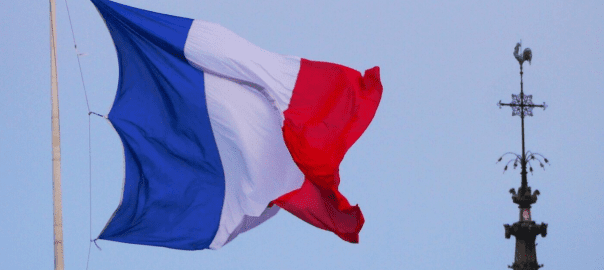05 September 2023 /Politics/ — France’s history of interference in Africa is a complex and controversial issue. There is no doubt that France has been involved in a number of coups and regime change operations, and that these actions have had a negative impact on many African countries. The bombing of Libya in 2011 is just one example of this.
It is difficult to say definitively whether this is why Africans are denouncing France. There are many factors that contribute to anti-French sentiment in Africa, including France’s economic exploitation of the continent, its support for corrupt and repressive regimes, and its failure to adequately address the legacy of colonialism.
However, it is clear that France’s history of interference has played a role in alienating many Africans. It is unlikely that France will ever be fully trusted by Africans until it fully acknowledges and apologizes for its past actions.
In addition to the bombing of Libya, France has also been accused of involvement in the assassinations of several African leaders, including Thomas Sankara of Burkina Faso, Patrice Lumumba of the Democratic Republic of the Congo, and Sylvanus Olympio of Togo. France has also been accused of supporting coups in countries such as Mali, Niger, and Chad.
France’s interference in Africa has been motivated by a number of factors, including economic interests, strategic concerns, and a desire to maintain its influence on the continent. However, these actions have often had negative consequences for African countries, leading to instability, violence, and poverty.
It is important to note that not all Africans are opposed to France. There are many Africans who appreciate France’s historical and cultural ties to the continent, and who believe that France can play a positive role in Africa’s development. However, the legacy of France’s interference in Africa is a major obstacle to building trust between the two sides.
France is not yet a pariah in Africa, but there is a growing sentiment against the country among some Africans. This is due to a number of factors, including France’s history of interference in Africa, its support for corrupt and authoritarian regimes, and its perceived neocolonialism.
In recent years, there have been a number of high-profile incidents that have damaged France’s reputation in Africa. For example, in 2019, the French government was accused of using its intelligence services to spy on African leaders. In 2021, France was criticized for its handling of the evacuation of Afghans from Kabul.
These incidents have led to a growing sense of distrust between France and Africa. Some Africans believe that France is no longer a reliable partner, and that it is more interested in protecting its own interests than in helping African countries.
It is too early to say whether France will become a pariah in Africa. However, the current trend is not good for France. If the country wants to maintain its influence on the continent, it will need to address the concerns of Africans and change its approach to Africa.
Here are some specific examples of France’s interference in Africa:
- In 1963, France helped to overthrow the government of President Patrice Lumumba in the Congo. Lumumba was a popular leader who was opposed to French neocolonialism.
- In 1990, France supported the coup that brought General Sani Abacha to power in Nigeria. Abacha was a brutal dictator who was responsible for the deaths of thousands of his own people.
- In 2004, France intervened militarily in Côte d’Ivoire to prevent the victory of Laurent Gbagbo, who was seen as a threat to French interests.
These are just a few examples of France’s long history of interference in Africa. This history has damaged France’s reputation on the continent and has made it difficult for the country to build trust with African countries.
If France wants to regain the trust of Africans, it will need to change its approach to Africa. This means being more transparent about its actions, respecting the sovereignty of African countries, and supporting democratic and accountable governance. It will also need to address the legacy of colonialism and neocolonialism.
Only time will tell whether France can overcome its history of interference in Africa and build a new relationship with the continent based on trust and cooperation.
Search related topics

